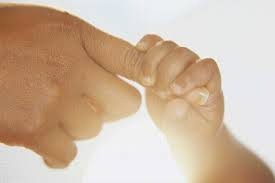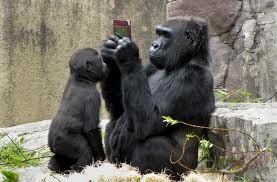There is no right way or wrong way to raise your children. There is no sure short answer to your questions on taming and molding your children. There is no hard and fast rule about what will work for you and what might not in regards to your children. Your family environment, your personality, your spouse’s personality and finally your child’s personality might not have anything in common. No two parents can be same. Every parent and every child is unique. Your parenting style varies as per your circumstance; your mood, your challenges and your luck that comes your way. Please remember this; even if you have loads of money, lots of assistanc e, lot of time and energy you might not be in a position to fix a serious problem of your child.
e, lot of time and energy you might not be in a position to fix a serious problem of your child.
Contrastingly, somebody who has materially very little, might raise an excellent human being if all else falls into place. Time and again teaching values, correcting your child with his/her behavior, most importantly how you behave in difficult times will usually result in your children having the same values. Let’s not forget that our children are not tailor-made; beyond everything else, they come to us with inborn qualities that we cannot exclusively order, request, or even refuse to accept as detrimental. What best we can do is, with lots of love and attention and words of wisdom make our children understand what is right and what is wrong.
One thing those who aren’t parents fail to understand about being a parent is: the deep, touching and incredible love that changes you forever when your child is born! The tiny creature makes you a parent. You are born as mother/father and that makes it a complex, overwhelming, yet fantastic experience.
Does reading books on parenting help
Can reading some books on parenting help you become a better parent? Can you copy someone else’s (successful) strategy for bringing up your children? Do often visits to counselors help you become better parent? Nope, the idea of seeking parenting advice from others and not listening to your heart is futile. Parenting is a reality and not an imagination. Any parent will tell you that it is very different than they thought it would be. Every child throws variety of challenges at its parents; and each challenge are different. Every experience is different. Children go through distinct periods of development as they move from infants to young adults and from young adults to adults. During each of these stages multiple changes in the development of the brain and body take place. What occurs and approximately when these developments take place are genetically determined. However, environmental circumstances and the child’s experience with key individuals within that environment have significant influence on how each child benefits from each developmental event. So, there are no hard and fast rules and regulations that one can follow.
There is no doubt that for most families, the teen years present a challenge for both parents and children. During adolescence, kids need their parents more than ever. Research shows that a positive family environment including fun and frolic, creative family activities, open parent-child communication and the encouragement to participate in positive extracurricular and community activities help teens ably to navigate these years with relative ease.
What exactly is parenting? An art or science
I think parenting is both an art as well as science. I call it an art because it depends a lot on a parent’s creative response to the each challenge. The challenge of disciplining, the challenge of bonding which fits the child’s personality, the challenge of making your children eat proper food, challenge of educating your child on sexual matter, keeping an eye on child’s friends, the right values so on and forth. I think parenting is an art because it is finding new ways of weaving values into your child’s life.
Parenting is also science because your child and you are biological entities. And the biology is ruled mostly by black and white writing. It involves psychology, sociology, anthropology, nutrition, genetics etc, etc and all these are science therefore parenting is science also.
But the art is what takes more effort. This requires a parent to trust on his/her instincts, to observe, to listen, to guide, to speak, to talk with changed tones, to act, and to learn from each experience. And, all these actions involve a lot of trial and error. Therefore, parenting is both science and art. There is no first thing or last  thing. You cannot do everything correct the first time. You will commit mistakes, reflect upon them, share them with others, figure out reasons and solutions, search the Internet and do what you feel is best ……that’s about it.
thing. You cannot do everything correct the first time. You will commit mistakes, reflect upon them, share them with others, figure out reasons and solutions, search the Internet and do what you feel is best ……that’s about it.
Parenting is about knowing your child is always watching you
Your children are always watching you. So be honest. Don’t go out of your way to hide your shortcomings. We are not Gods, we are mortal human. We can fail, we can be wrong, we can err sometimes – the best thing to do is be honest about our shortcomings. Don’t ill-treat yourself.
It’s better to be upfront without going too much into details when it comes to correcting your child. Sometimes, when you see your own bad habits in your children start working together to get rid of those bad habits. It can be fun.
I want to make another very important point here, that is your child and you are two separate people. Your child’s habits and traits are his/her alone. Your child’s success, failure, temperament, illness, way of walking, manners are going to be far different than your imagination. Don’t get too attached to what other say or comment on your child. Accept your child wholeheartedly.
 And last but not the least; don’t lose your sense of humor. Learn to laugh at those silly mistakes made by you, your spouse and your child. You need not always be serious about life. One of the best parts of being a parent is spending time playing with your kids and seeing them grow. It’s a great opportunity to feel like a child, a teenager, an adult again and that is precious. Spending time with your kids enjoying their company through their each millstone is precious. Be your child’s best friend. Pass on the legacy to children of appreciating goodness in others and a love for the basics in life. Children are incredibly wise and tend to see the world more simply than we do. Sometimes they think far better than we do; perhaps it’s time we start taking their advice.
And last but not the least; don’t lose your sense of humor. Learn to laugh at those silly mistakes made by you, your spouse and your child. You need not always be serious about life. One of the best parts of being a parent is spending time playing with your kids and seeing them grow. It’s a great opportunity to feel like a child, a teenager, an adult again and that is precious. Spending time with your kids enjoying their company through their each millstone is precious. Be your child’s best friend. Pass on the legacy to children of appreciating goodness in others and a love for the basics in life. Children are incredibly wise and tend to see the world more simply than we do. Sometimes they think far better than we do; perhaps it’s time we start taking their advice.














































